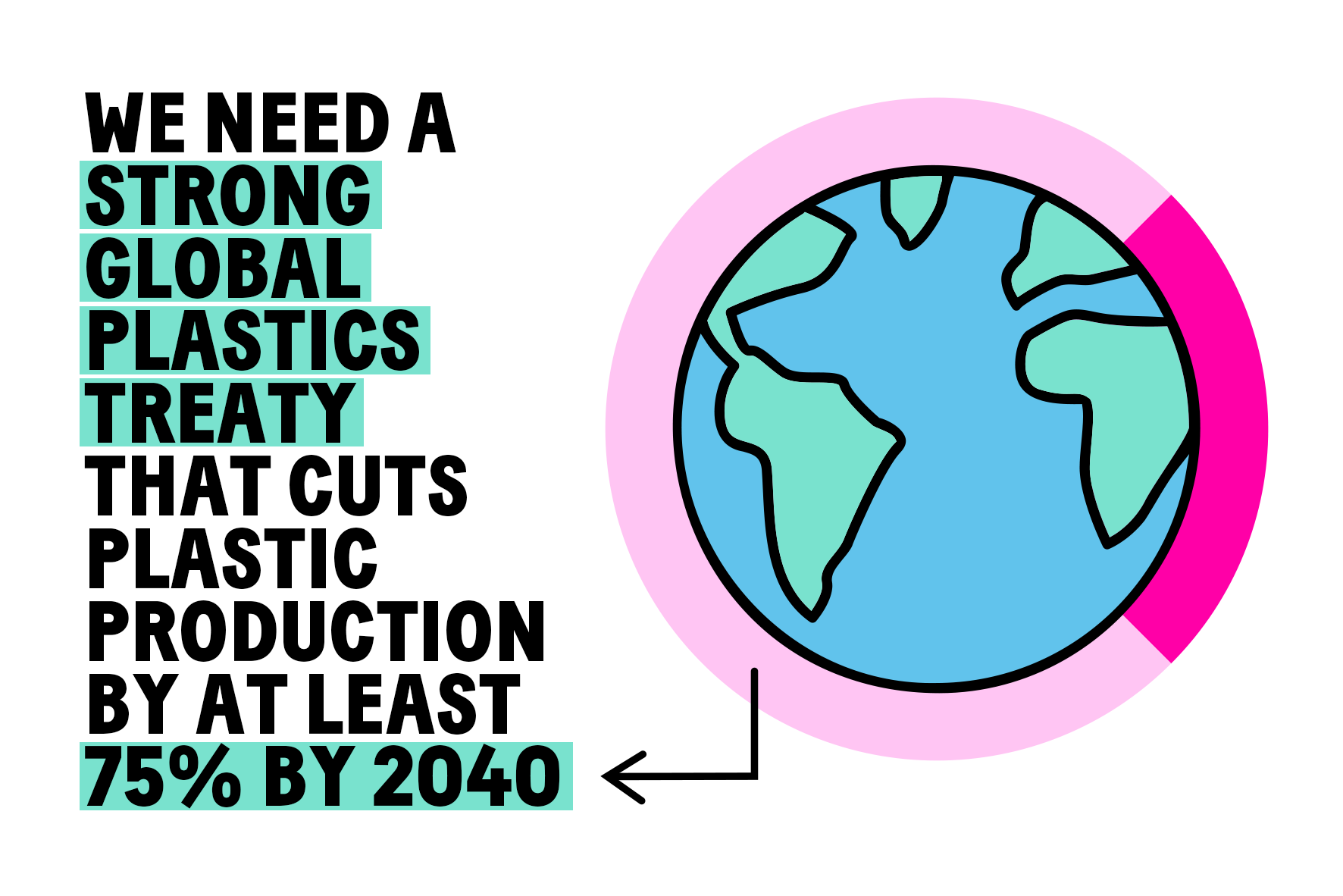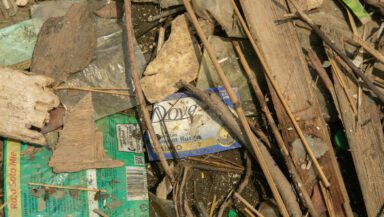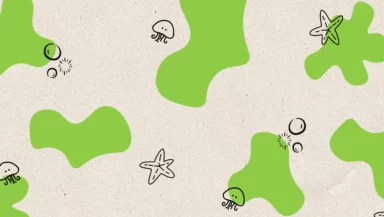We’ve been crunching the numbers and can reveal the truly shocking results from this year’s Big Plastic Count.
- Over 220,000 people took part.
- Together we counted 4.6 million piece of plastic.
- Only 17% of our plastic waste gets recycled here in the UK.
- The rest is burned in incinerators, sent to other countries, or dumped in landfill.
Watch the video or keep reading to find out why more recycling isn’t the answer – and discover the solutions that would truly make a difference.
Together we counted a LOT of plastic
One in every 300 people across the UK took part in The Big Plastic Count. That’s hundreds of thousands of people who counted their plastic waste.
The evidence is beyond doubt: the only way to tackle household plastic waste is to cut it at the source. That means reducing the amount we’re making from the get go.
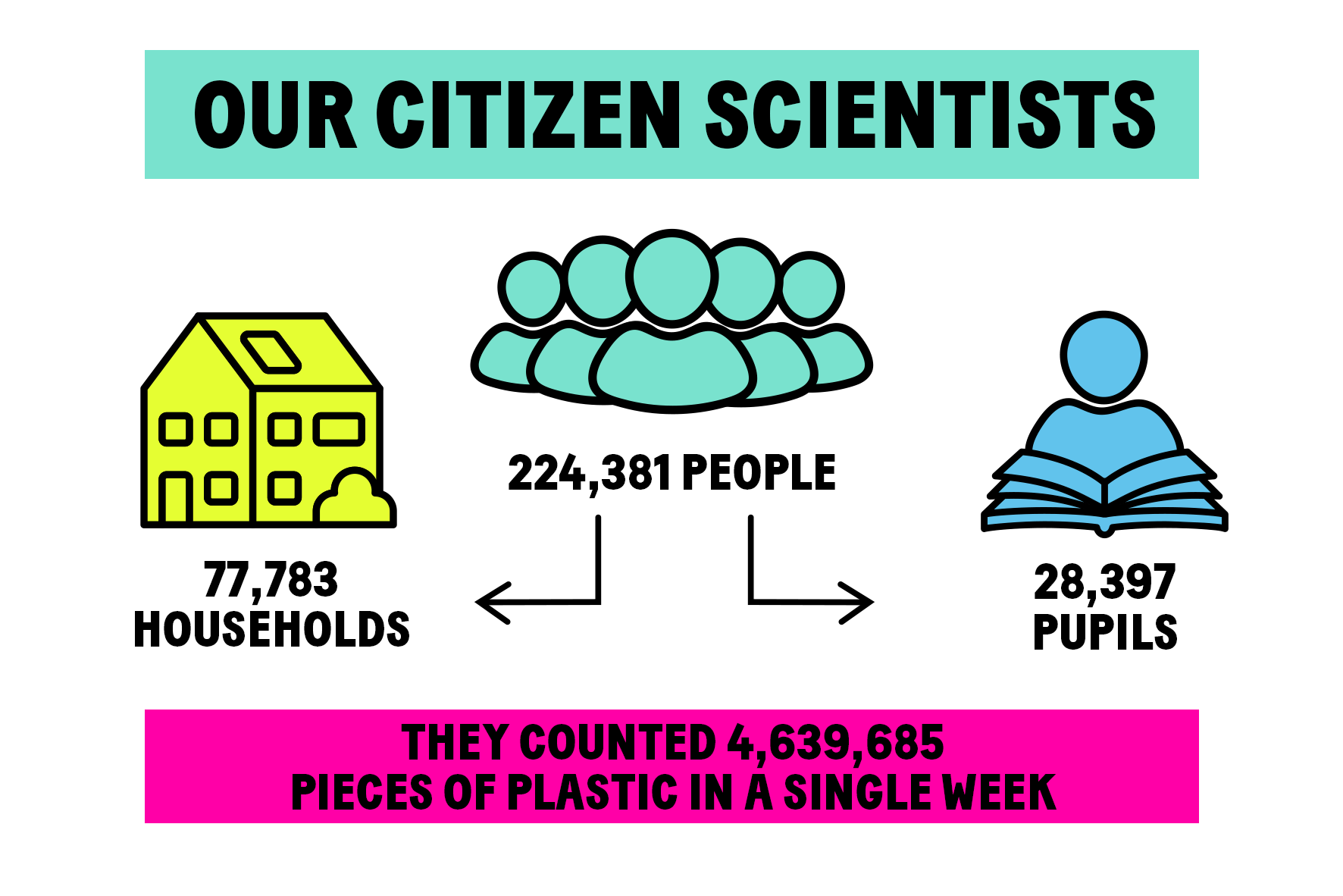
The UK is producing far too much plastic
The Big Plastic Count shows just how much we need to cut the amount of plastic that is being produced. These results prove that we need ambitious and urgent action from the government.
The UK tops the charts for plastic waste per person globally – second only to the US.
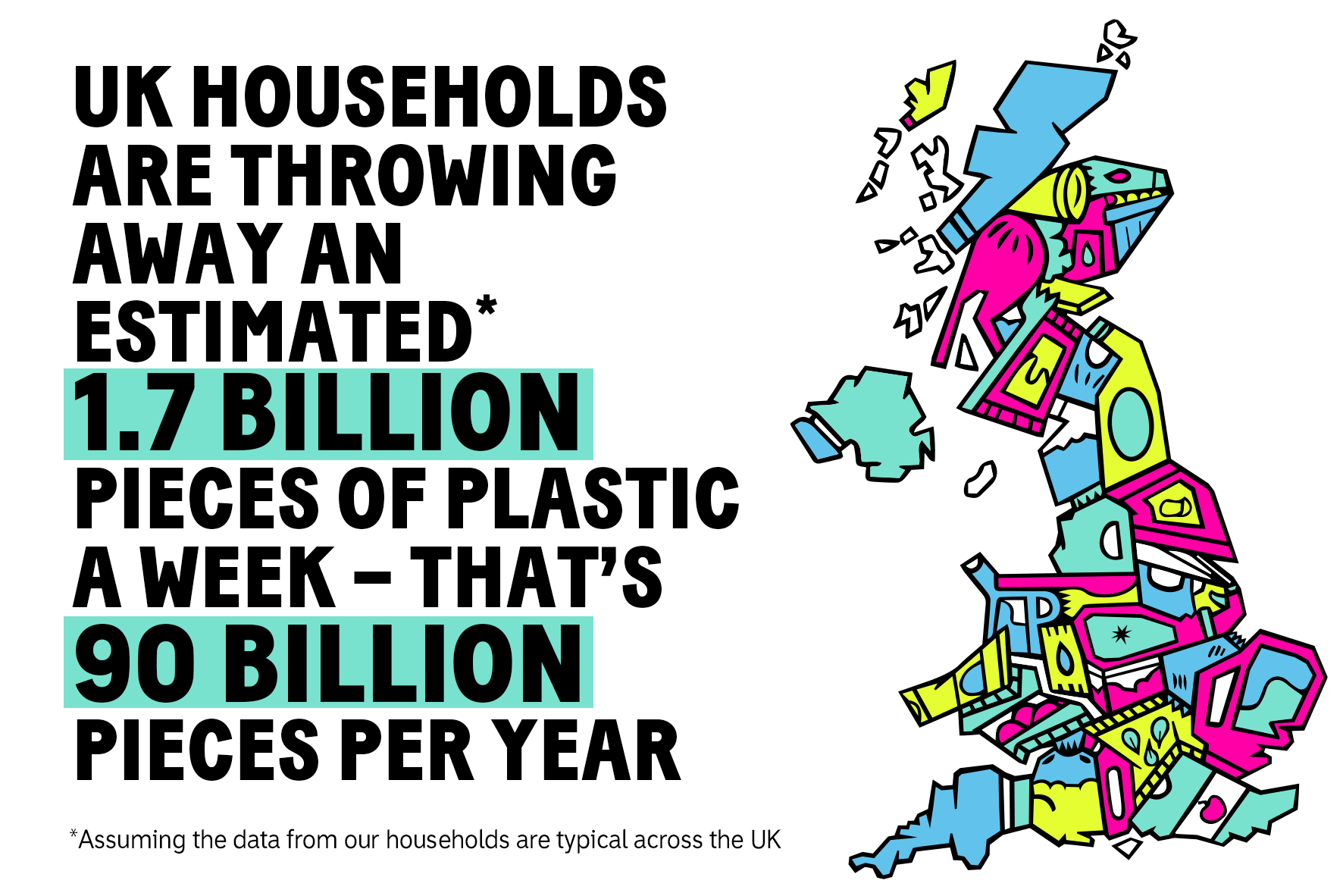
So, what is happening to our plastic waste?
We are still dumping our plastic waste onto other countries with poorer recycling infrastructure than the UK.
While landfill gets more expensive, we end up burning more waste. There is simply too much plastic being produced.
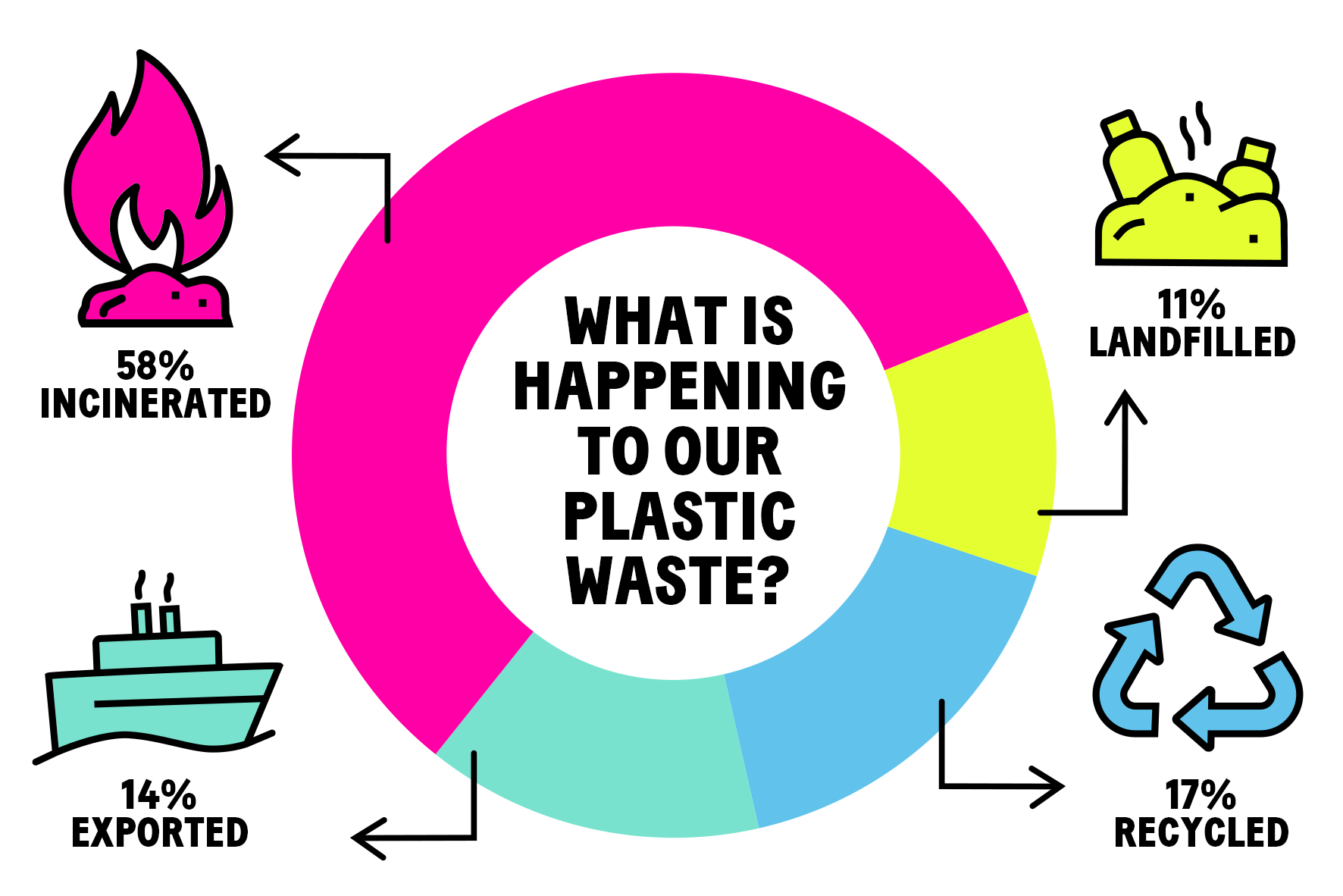
More and more plastic is getting burned
The government is choosing to incinerate over half (58%) of the pieces of our household plastic waste – right here in the UK.
Incinerators release toxic gases that pollute the air we breathe.
What’s more, they are three times more likely to be built in deprived neighbourhoods, where residents are disproportionately people of colour.
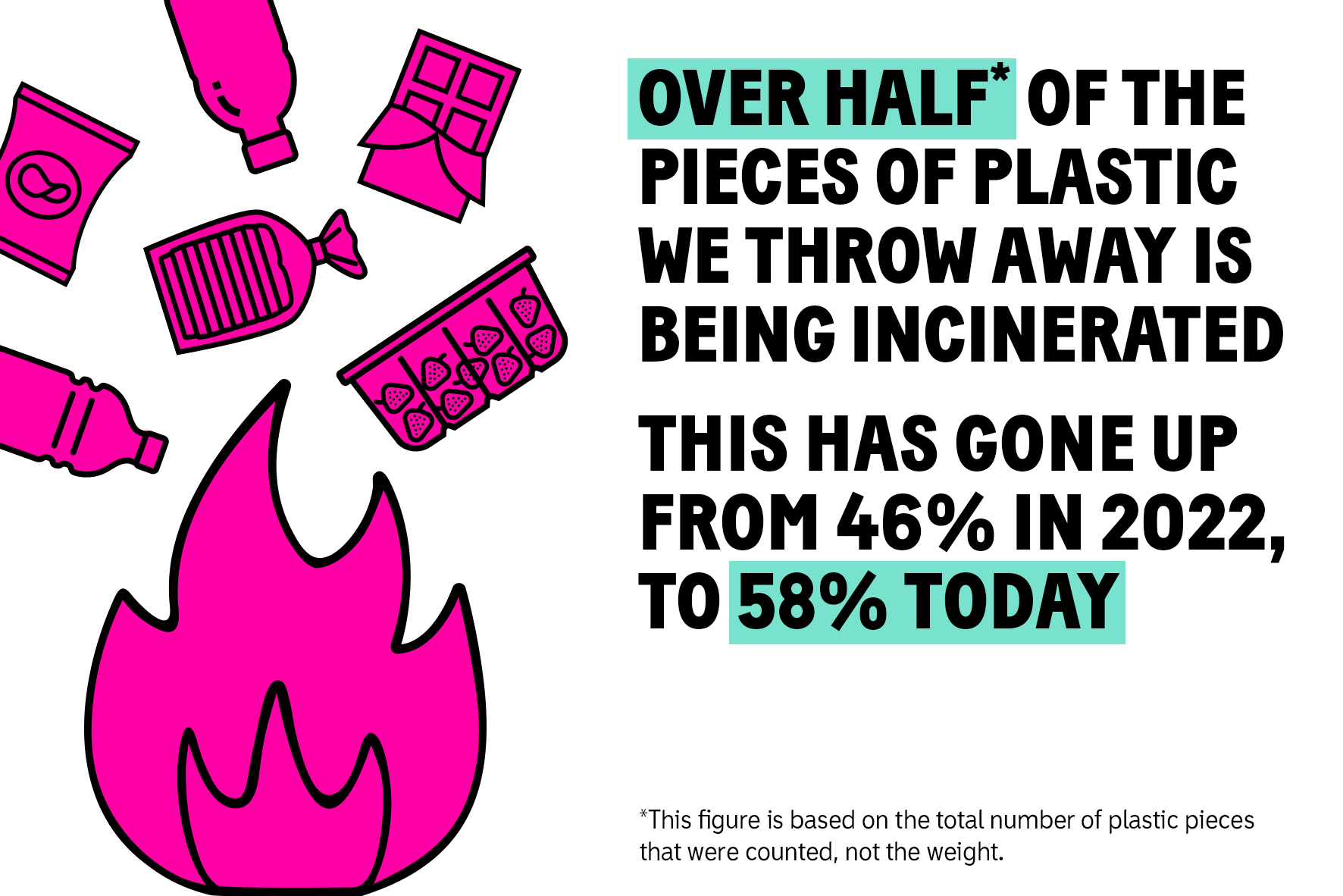
Incineration is not the answer
Incinerating plastic can release more carbon dioxide per tonne than burning coal, worsening climate change.
This doesn’t match the government’s own commitment to drastically reduce greenhouse gas emissions by 2050. What’s worse, 18 new incinerators are being built in the UK – from Glasgow to the Isle of Wight. This problem is not going away.
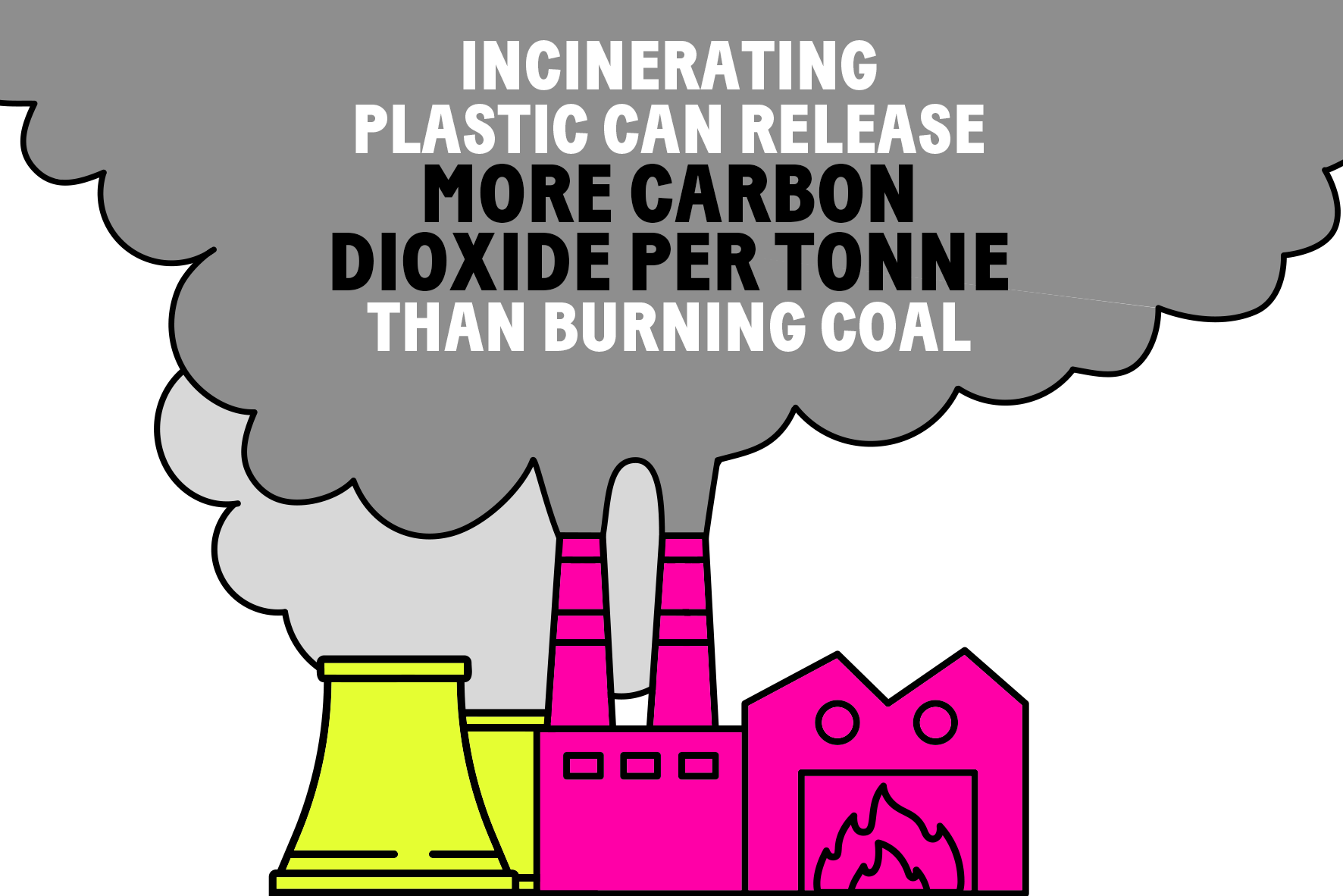
…and nor is recycling
Recycling systems can’t cope with the sheer amount of plastic waste that’s being produced. And vast quantities of it can’t be recycled at all.
What’s more, the recycling process releases microplastics into our air and water – worsening the very issue it’s designed to solve.
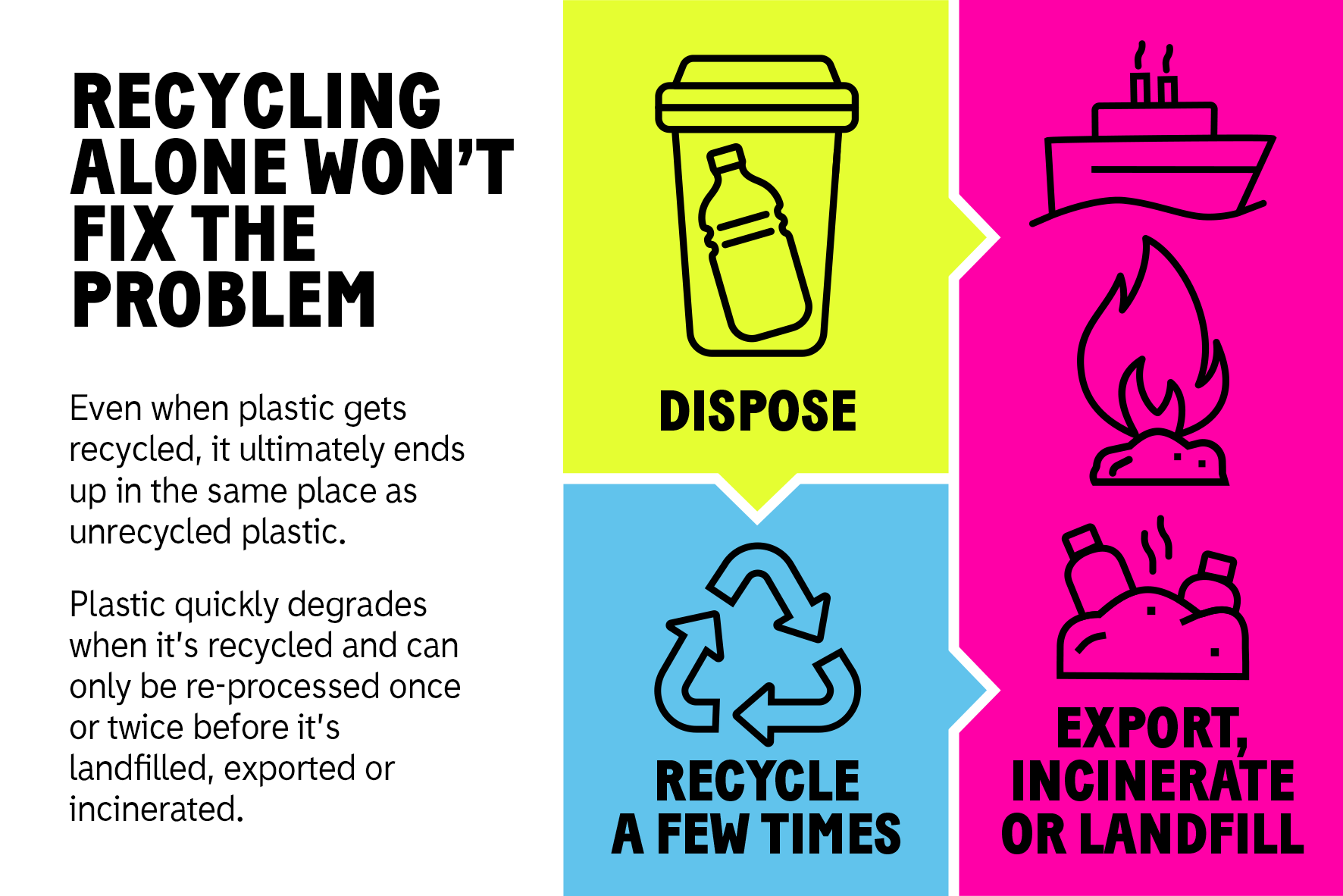
It’s time for governments and big brands to take action
Thanks to people like you, governments have now started UN negotiations for a Global Plastics Treaty which will set a global target to reduce plastic.
We’ve influenced a major United Nations Treaty before. Thanks to supporters like you, and a range of organisations, The Global Oceans Treaty was agreed in 2023. It is the biggest conservation win in history, with the potential to protect 30% of our oceans by 2030. Together, we can make history again.
